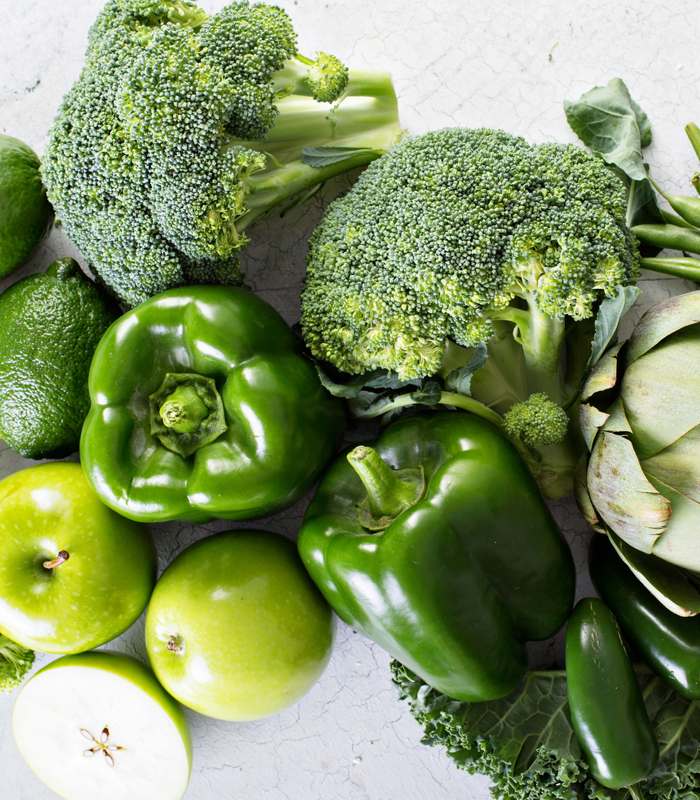The Hartstikke Gruun Groenteplakken project of HAS University of Applied Sciences graduate Chantal van der Noordt, won the Green Education Impact Award 2018 in the category University of Applied Sciences. Chantal received the award during the GroenPact Event on 16 January 2019. It was presented, together with a cheque for €2,500 from Groen Impact, by the Dutch Minister for Agriculture, Nature & Food Quality, Carola Schouten.
Three HAS nominations
No fewer than 3 projects from HAS University of Applied Sciences were nominated for the Green Education Impact Award: ‘Gewone bronlibel’, ‘Indonesian vanilla - fit for the future’ and ‘Hartstikke Gruun Groenteplakken’. The award is an initiative by GroenPact, a collaboration between business, education and government looking at issues regarding food, sustainability and quality of life.
The 4th nomination in the category University of Applied Sciences, came from Van Hall Larenstein University of Applied Sciences: ‘Bouwen aan een groener Velp’ (Building a greener Velp).
Hartstikke Gruun Groenteplakken (Green Vegetable Slices)
Food Innovation graduate Chantal van der Noordt was nominated for her project ‘Hartstikke Gruun Groenteplakken’, in which she developed a tasty and healthy sandwich topping for children between 6 and 11 years, with the aim of increasing the intake of vegetables in this target group. “70% of children fail to reach the target of 150 grams of vegetables a day,” Chantal explains. “Hartstikke Gruun uses the vegetable slices to respond to consumer needs for a new moment for eating vegetables, namely breakfast and lunch time. Moreover, the vegetable slices are made from B-quality vegetables, thus reducing waste. The product will be available in 4 varieties.”
Chantal had already won the HAS Food Experience Audience award, the Food Innovation Bachelors Award of The Netherlands Nutrition Centre Foundation. She also went through to the finals of the Dutch ‘Nieuwe Lekkerbek’ programme. “The project has had considerable impact on my future,” she says enthusiastically. “I’ve now started my own small company. Something I never imagined doing.”
Indonesian vanilla - fit for the future
The 2nd nomination from HAS University of Applied Sciences is the project “Indonesian vanilla - fit for the future”, by 5 students from the study programme International Food & Agribusiness. Project Leader Bram van Helvoirt explains: “It’s amazing that our international project was nominated for the Impact Award. The real impact we hope to make is in Indonesia via local agroforestry pilot projects by Verstegen, which were inspired by our study programme.” The global market for vanilla is dominated by Madagascar, but this comes at a great cost: child labour, corruption and violence. The production methods put pressure on the environment, and vanilla farmers struggle to provide a decent living for their families. These crimes clash with the norms and values of Verstegen when it comes to sustainable and corporate social responsibility.
The students identified an alternative country of origin for vanilla: Indonesia, and developed an innovative business model for purchasing sustainably produced vanilla directly from local farmers. This led to a serious future strategic change of course at Verstegen: from short-term pricing and profits, to long-term collaboration and development. One of the students has been now been employed by the company to further investigate the possibilities and to set up the new ‘direct sourcing agroforestry’ business model.
Golden-ringed dragonfly
The final-year research project “Gewone bronlibel”, by 4 Applied Biology students, was the final HAS nomination for the Impact Award. Recently graduated, Jeroen Koolmees explains the project: “The golden-ringed dragonfly is quite a common species in Europe, but very rare in the Netherlands. It needs clean seepage water high in oxygen. One of the populations lies in area management by the Aa and Maas Water Authority in the Esperloop, a stream in Gemert-Bakel. Due to its unique location on the Peelrandbreuk (Peel edge fault), water high in oxygen can come to the surface from relatively deep in the soil. Another 4th-year group from HAS University of Applied Sciences had already discovered the skins of the dragonfly in 2016. And the Water Authority wanted to know the current situation of the population.”
Unfortunately, the students were unable to spot the golden-ringed dragonfly, which led them to focus on the habitat and the question why they were unable to see the dragonfly. Jeroen: “We learned a lot, because we were forced to adopt in a problem-solving approach. And it paid off! By investigating the food supply and the dragonfly’s habitat, we discovered fantastic results.” Following the study, the water authority, the Dutch Butterfly Foundation and the Province of North-Brabant have now started a process to improve the living environment of the golden-ringed dragonfly and other aquatic insects.




